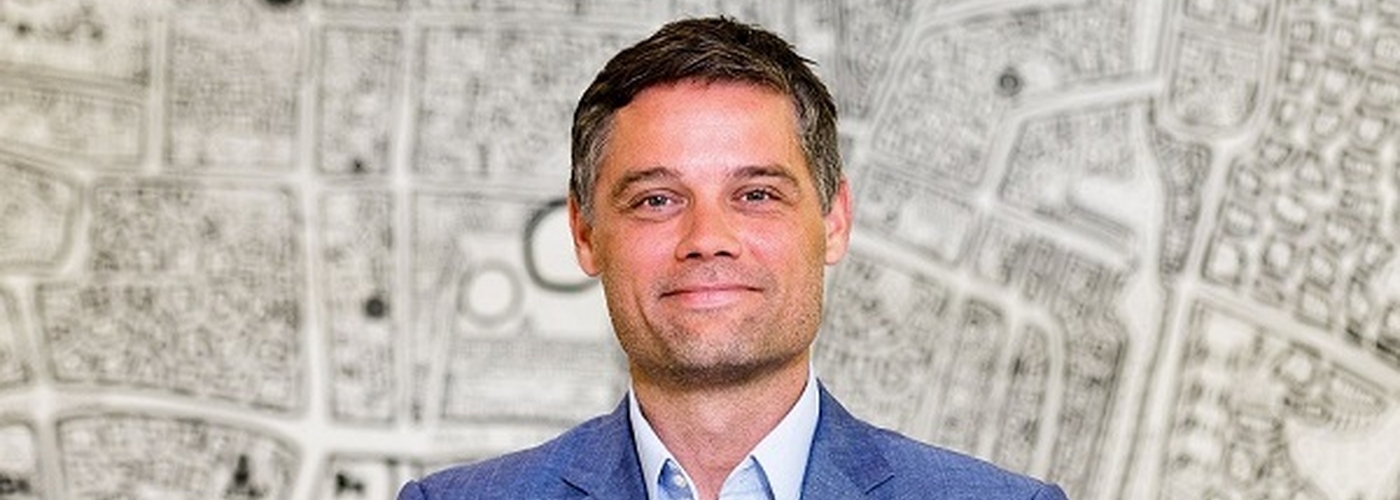Jonathan Schofield talks to the ebullient enthusiast behind a company with almost 5,000 flats on its books
MICHAEL Howard is a tide of breezy confidence and quickfire humour. He’s the boss of UrbanBubble, the residential property management company and he’s relentless, but very engaging.
I remember interviewing Peter Saville back in the day. He was the ex-Factory Records design guru who became Manchester’s cultural attaché on a fat retainer and conjured the tag for the city of ‘original, modern’. I had an hour slot with him. I asked the first question and then, half an hour later, I said, “May I ask my second question now, Peter?” Howard is like that. He hits you with both barrels, between the eyes.
Between 1998 and 2005 they threw up apartments. It was borrow, build and bugger off. So, we created a different service
“So how did it all begin?” I say. And boom, we're off.
“I was living in town in 2008, you get the brochure, you see that cosmopolitan city centre living, coffee bar culture thing and go, fabulous,” he says. “And you then move into your flat and that’s it, with no services to speak of and a homeless guy going through your bins. You say this is not what I signed up for.
“I'd taken redundancy from Centrica when they put 500 jobs overseas. I had the option of being a bar owner in the Northern Quarter, being a butcher because I was a butcher in Liverpool before, or do something else.
“Meanwhile I was living in this block of apartments, Ducie Wharf, and paying £100 a month to Scanlans property management. It was breeze block finish, and no one could tell me what the management budget was nor whether there was a list of improvements.
“Then on our honeymoon my wife said she thought I could do things better and said why don’t you do block management? So I got myself on the board of Scanlans and was a director for four years. I managed the Ducie Wharf block and made the service charges work.”
He pauses and we take a breath. Howard, a Liverpudlian, hasn't lost a trace of his accent and is full of entertaining asides.
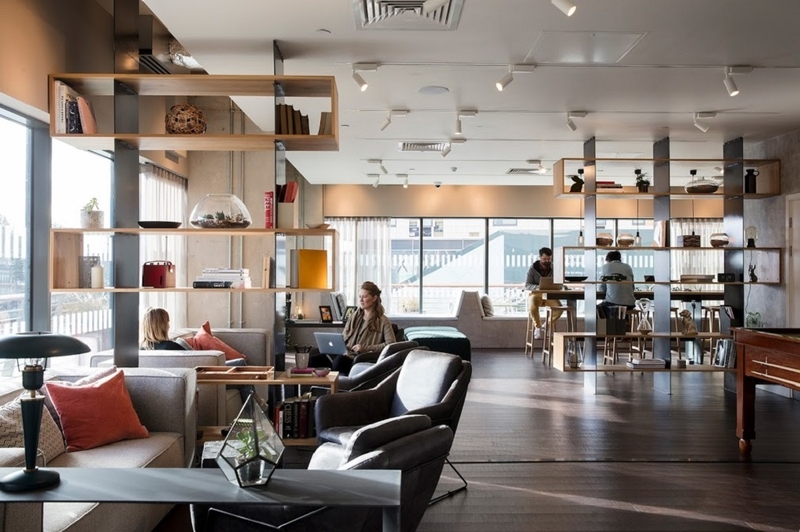
“So where does the name for UrbanBubble come from?” I ask.
“The name was thought up in Croma restaurant in Chorlton because I wanted a clear identity of what we’re all about,” says Howard. “People in town create their own bubble around them, their own friends’ group, the activities they do, so that was the inspiration.
“Then I wanted to concentrate on customer-centricity and give a voice to the customer. They might ask questions such as: can the management company cope with my queries, do I feel safe and secure, do I feel part of a community, what else am I getting? These were things that block managers didn’t even think about.
“Remember, between 1998 and 2005 they threw up apartments. It was borrow, build and bugger off. So, we created a different service. I was going up to owners and renters asking, what are your problems? I don’t think I could find a best practice example anywhere. People responded. That’s how we grew from a standing start in 2009 to 4,500 apartments now.
"We’re the biggest residential property management company in Manchester,” he adds proudly
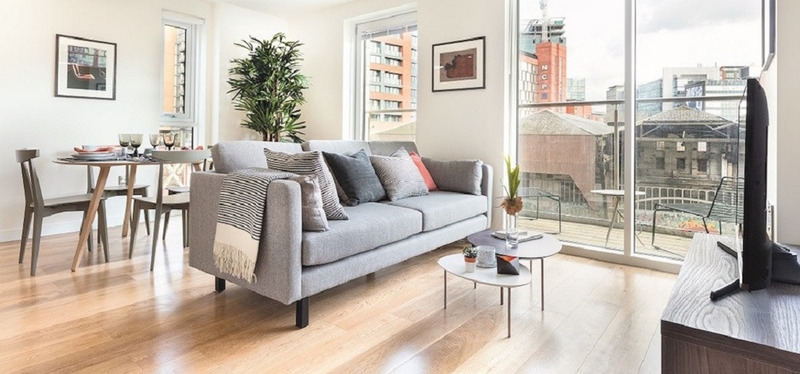
He and I are sat in the comfortable and amenity-filled ground floor of Slate Yard, on the Salford side of the river in the city centre.There are high tables for working on, soft seating for lounging, plants, games, a pool table. If you feel like the four walls of your apartment are closing in it’s the sort of space where you can draw breath. Previously, the model was all these ground floor areas should be bars and restaurants rather than working directly for the tenants.
“What’s the audience?” I ask.
“It’s very diverse,” says Howard. “It’s not all millennials; for example, we have five families with kids at Chetham’s School of Music here, and we have guys who are in their fifties and sixties. It’s like this across the city centre. Castlefield Forum, for example, is run by people who are not youngsters. Piccadilly Village, for instance, is a place where people are really invested in their communities.
“Of course, there is a very large younger element too. Given it’s hard to get on the property ladder until your late thirties now, there's a transformation in renting, there has to be. For the younger people, the Spotify, the Netflix generation, you don’t have to own a place.
“But that doesn’t mean you don’t want to be part of a community. The digital age has allowed us to do that. So, the idea of UrbanBubble came from the ability to live in an apartment building, which might be typical of the market, but which had great service and with your own little world around you, your bubble."
He airs one of his big beefs here. He thinks that with these people in mind, more one-bedroom flats need to be built. This might seem to go against sound social policy. Surely, we require more families in the city centre and three or four bedroom flats? For Howard, this doesn’t reflect the facts on the ground. Or seven storeys up. He believes in diversity within the rental market, but one bedroom units, he thinks, are essential as not everybody wants to share, especially if they aren’t part of a couple or don’t have a friend with whom to share. He's not alone in the Manchester property market in having this view.
“I always return to first principles," he continues. We don’t want customers saying they don’t feel they have a say in where the money is spent and with choice. But you always have to adapt and be creative.”
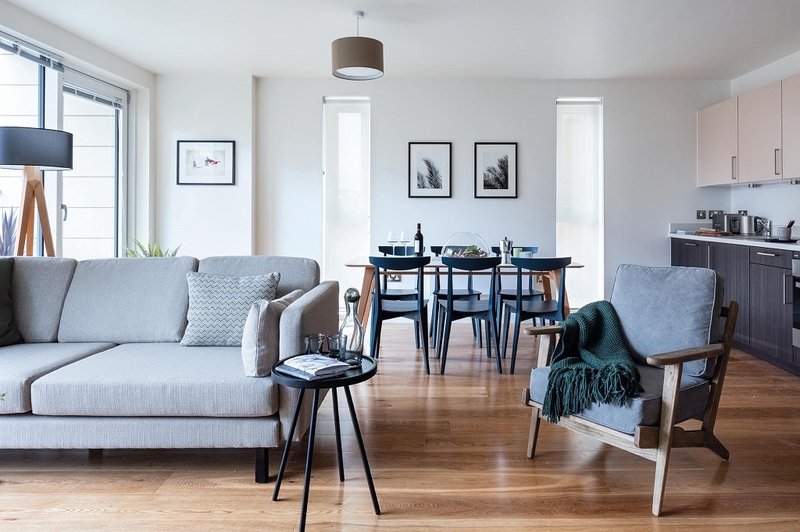
In order to adapt and be creative, Howard went on an eight month Goldman Sachs Leadership programme. At the end, he had to a draw up a business plan to show where he wanted to be in five years. He looked at different options – development, project management, lettings – but went back to his vision “of making the city a better place to live” because it was “a very clear vision”.
He decided “to cut out the crap” with the leasehold and managing agents and lettings agents. If he ran all those parts as one package he reckoned he could cut 40% of associated costs.
“You had £2,500 fees for a two bedroom flat in Manchester to pay before you’ve done anything. I’m charging institutions to provide the whole lot,” says Howard throwing figures around like a flail threshing wheat. “In our portfolio in Manchester, 83% is buy to let. Those investors are looking to see how they can maximise their yield. They don’t think about putting Trudy on the front desk to give customer service, that WAS property. I don’t think it is any more.
“The light bulb moment was when I heard this phrase PRS, private rental sector. Suddenly developers no longer make the decision, funders do. They are working on gross net models, a fifteen-year long term cost.”
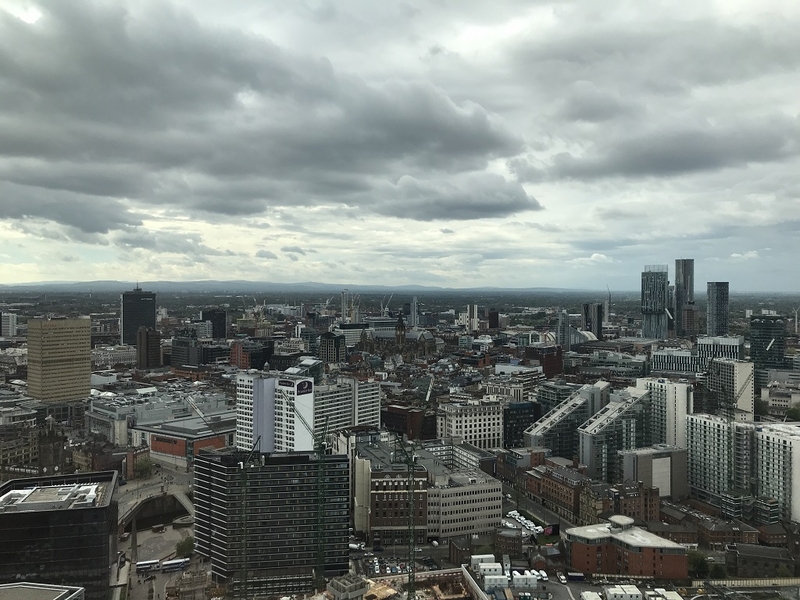
Howard gets worked up on another beef with the industry as it stands, fidgeting in his chair, and moving his arms rapidly
“Anyone can punt on rents,” he says. “A lot of people in Manchester have done that, that’s the problem. You have all these one-man bands running around doing a hundred units from a mobile phone, and offering free rent for six months, it’s so easy to do, and that’s why we have to professionalise the industry. You’ve got landlords wanting the cheapest possible price for the service and everyone rips off the tenant. It’s bottom of the barrel stuff. Fortunately, legislation in June will prevent much of this, but it’s been frustrating to watch.”
Howard works with several favoured funders. He thinks Legal & General are a model of the species.
“That company has pension funds with £26bn under management. These assets have to be secure assets, with long term stable income. Legal and General have a really good social and moral compass. I like to think we are similar in terms of our morality, we’ve got a vision for the next 25 years, and Manchester is a great place to apply that.”
I press him on “why Manchester?”
“Going back to census data from 2001 and 2011,” Howard says, “there has been a huge re-urbanisation. Manchester has a growing population and we’re getting jobs in and we are getting Grade A office space, so the workers are staying. We’ve got a great lifestyle to offer here, a good brand and great connectivity. The city is now seen as over and above London, the hot spot for investment.”
“Within all that, it’s really important we sort out renters, with good variety, great value, great security and a high level of quality, customer service. At UrbanBubble we think we’ve started to prove that point in Manchester so we’re expanding to Liverpool and Birmingham and elsewhere.”
You can’t help but like Michael Howard, he’s a charmer and uses that. He’s also an entrepreneur in the classic mould. Some people seem to attract money like a magnet and some to repel it. Howard is definitely in the former grouping. You suspect he could have made a fortune selling sewage pipe fittings if he’d put his mind to it.
Shortly, he’s going to measure his company by his own yard stick - or backyard stick, so to speak. He’ll be moving into town with his family from his refurbishing Hale home and coming to live in West Tower in Deansgate Square for a year. The 350-unit building is owned by Legal & General and will be managed by UrbanBubble. Howard will be his own customer, his own judge and jury.
Howard keeps repeating, mantra-like, “We are just trying to get on with the job of building really cracking communities, making better cities.” People who are cynical about the property sector might think he’s using all this passion for conducting business ‘in a decent and fair manner’ as cover for raking it in. Looking him in the eyes you can tell Howard really feels that he is “on a mission to do things differently”: while making money, of course.
I ask, finally, if he gets bored easily. He nods and grins, yet if all his nervous energy helps to make living in a rented flat as effortless as he intends, then that low boredom threshold will have helped improve at least one aspect of city life.





